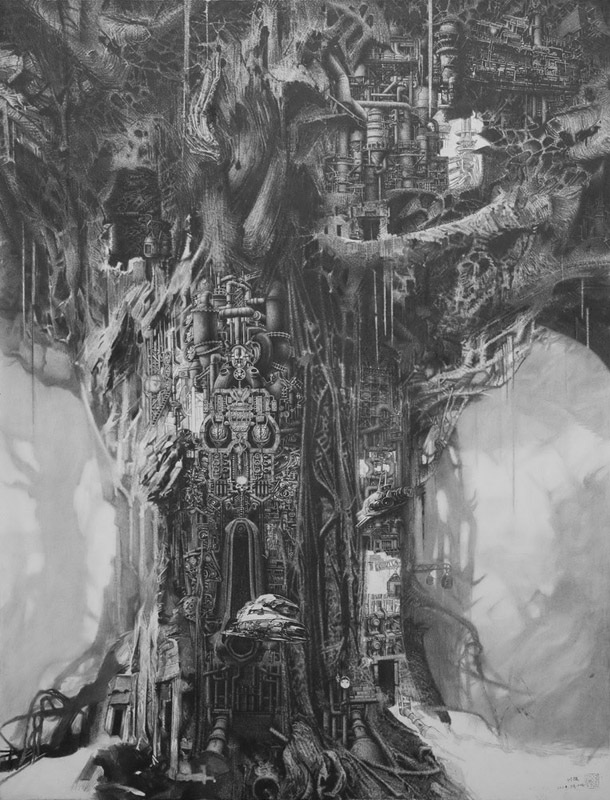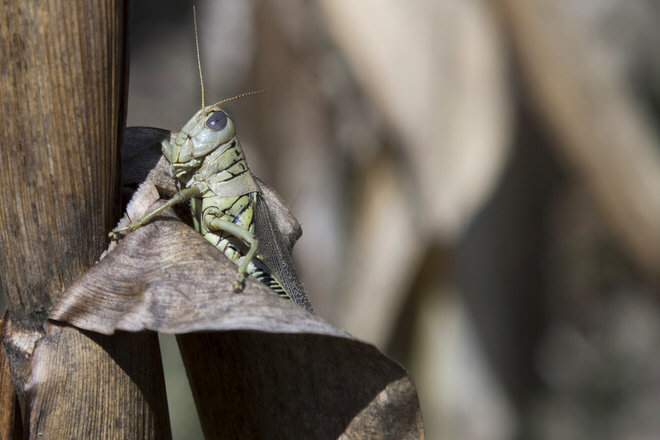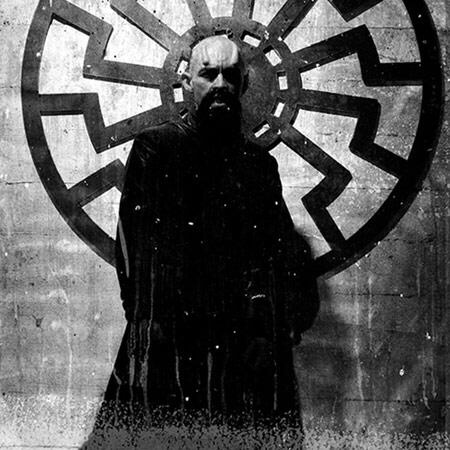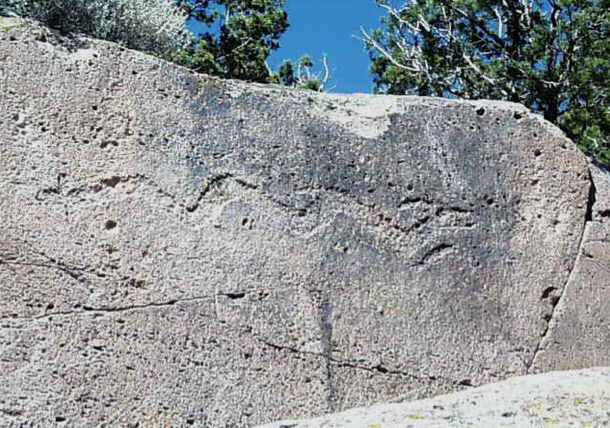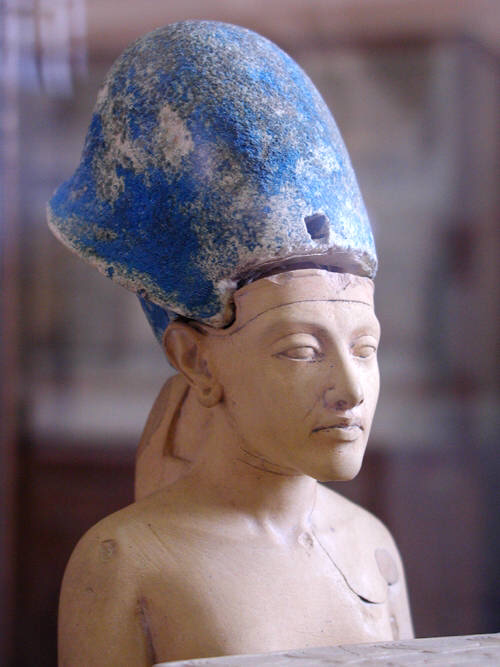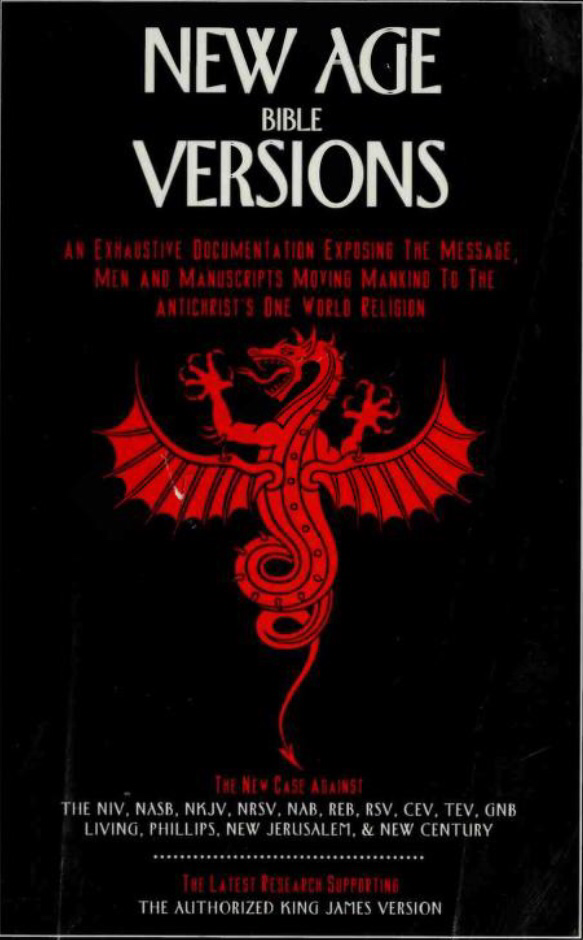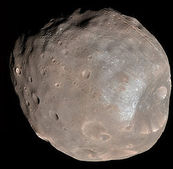
Phobos (/ˈfoʊbəs/ FOH-bəs;
Greek: Φόβος; systematic designation: Mars I) is the larger and closer of the two natural satellites of Mars. With a mean radius of 11.1 km (6.9 mi), Phobos is 7.24 times as massive as the second moon Deimos. It is named after the Greek god Phobos (which means "fear"), a son of Ares (Mars) and Aphrodite (Venus) . Both moons were discovered in 1877. 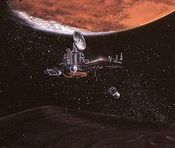
The Phobos (Russian: Фобос, Fobos, Greek: Φόβος) program was an unmanned
space mission consisting of two probes launched by the Soviet Union to study Mars and its moons Phobos and Deimos. Phobos 1 was launched on July 7, 1988, and Phobos 2 on July 12, 1988, each aboard a Proton-K rocket. Phobos 1 suffered a terminal failure en route to Mars. Phobos 2 attained Mars orbit and returned 38 images with a resolution of up to 40 meters, but contact was lost prior to deployment of a planned Phobos lander. |

Fobos-Grunt or Phobos-Grunt (Russian: Фобос-Грунт, literally Phobos-Ground) was an attempted Russian sample return mission to Phobos, one of the moons of Mars. Fobos-Grunt also carried the Chinese Mars orbiter Yinghuo-1 and the tiny Living Interplanetary Flight Experiment funded by the Planetary Society.
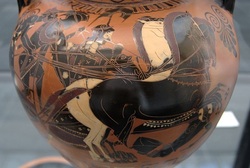
Phobos (Ancient Greek: Φόβος, pronounced [pʰóbos], meaning "fear" or "terror") is the personification of fear in Greek mythology. He is the offspring of Aphrodite and Ares. He was known for accompanying Ares into battle along with the ancient war goddess Enyo, the goddess of discord Eris (both sisters of Ares), and Phobos' twin brother Deimos.
|

Pho·bos/ˈfoʊbəs, -bɒs/[foh-buhs, -bos] noun
1. Also, Pho·bus /ˈfoʊbəs/[foh-buhs] Classical Mythology. a son and attendant of Ares and the personification of a fear held to possess armies and cause their defeat. 2. Astronomy one of the two moons of Mars. |


